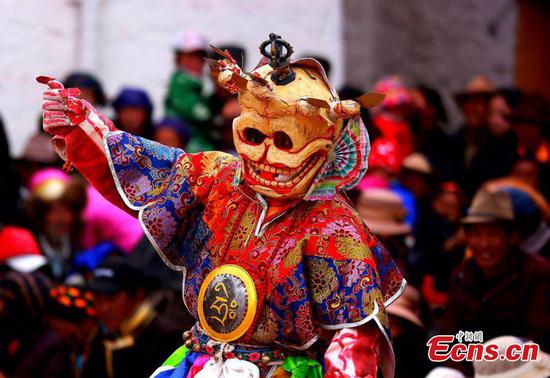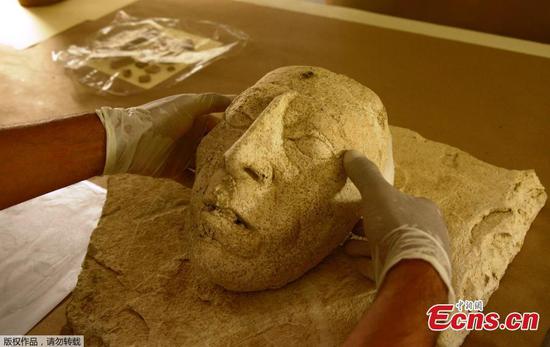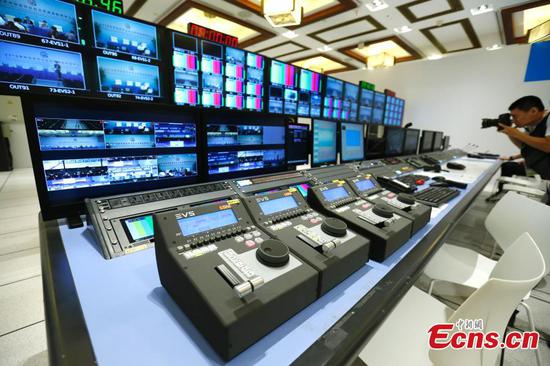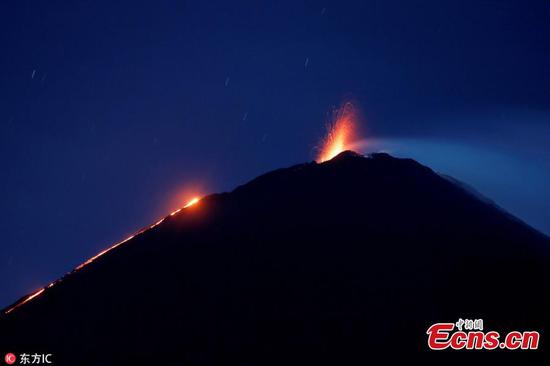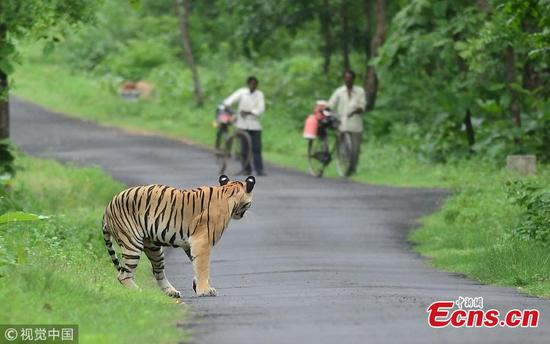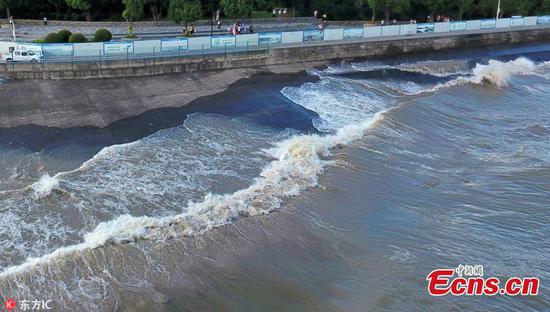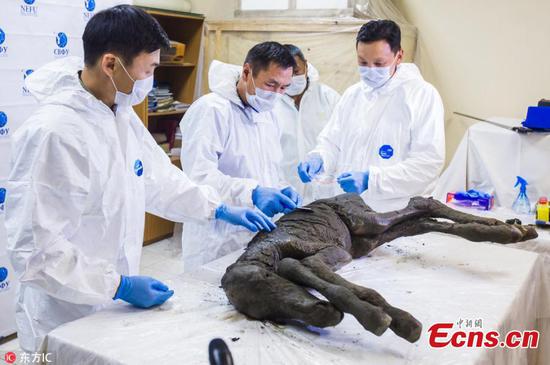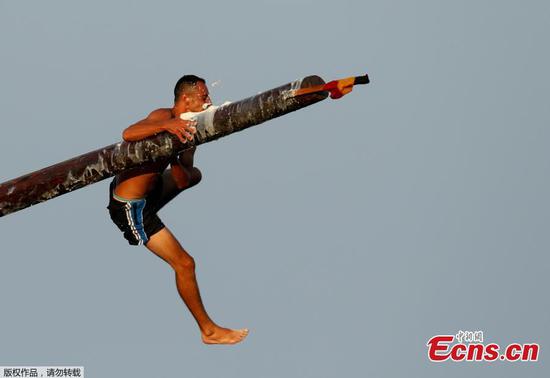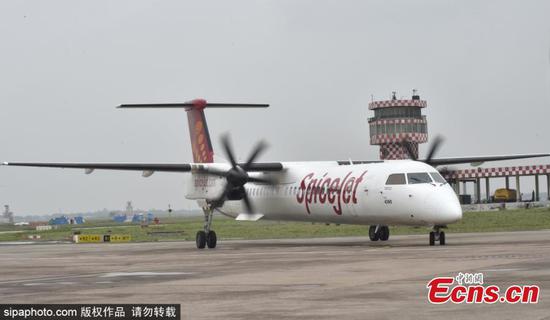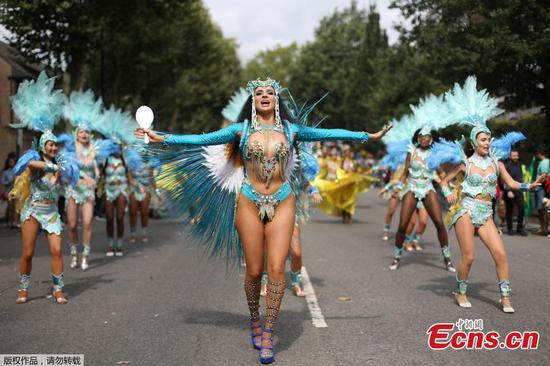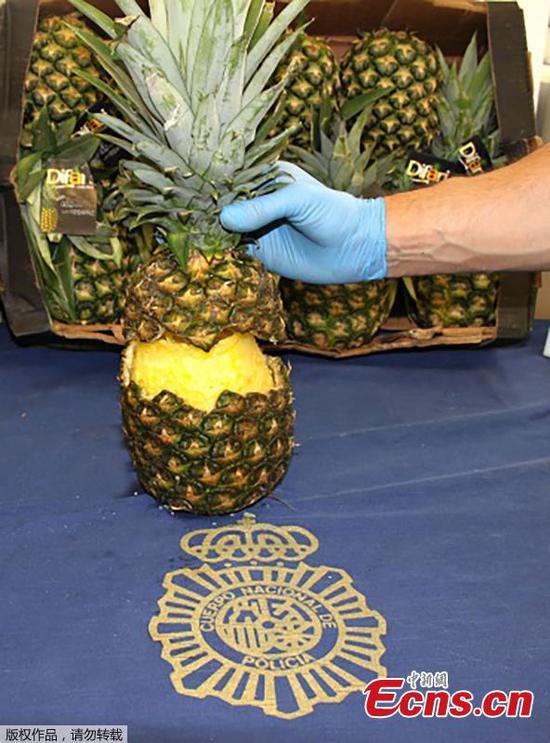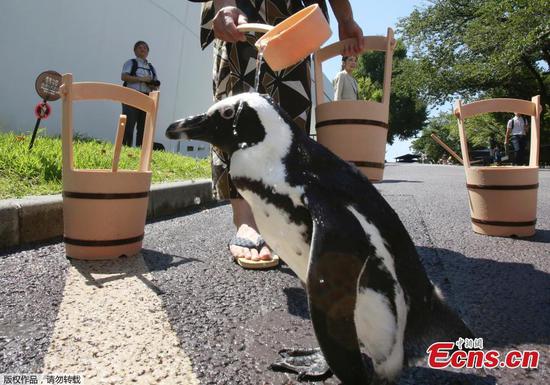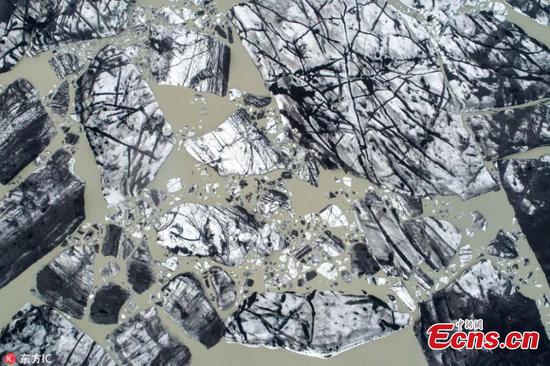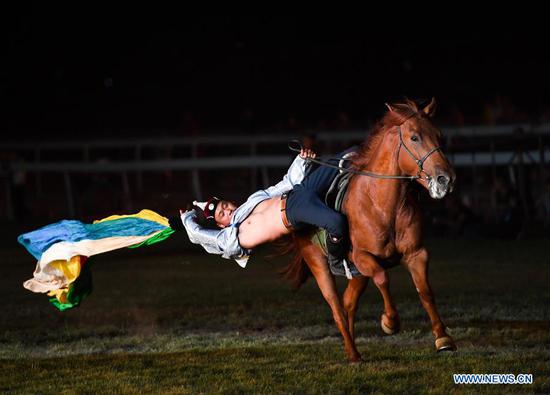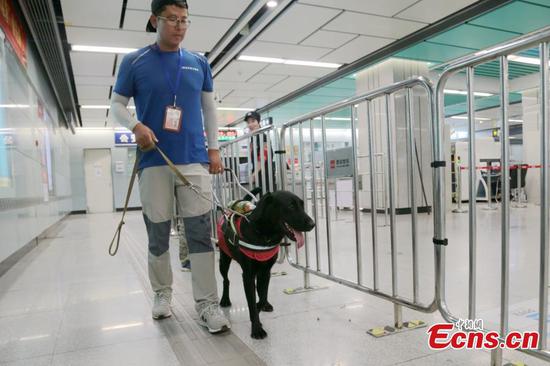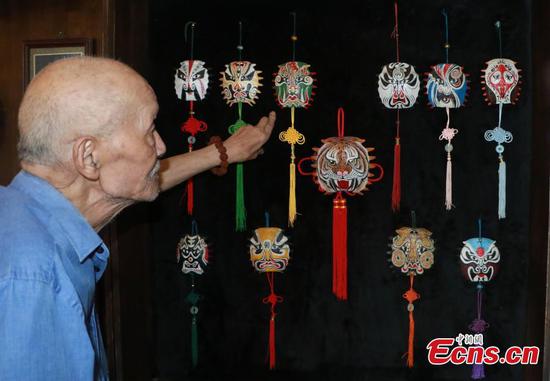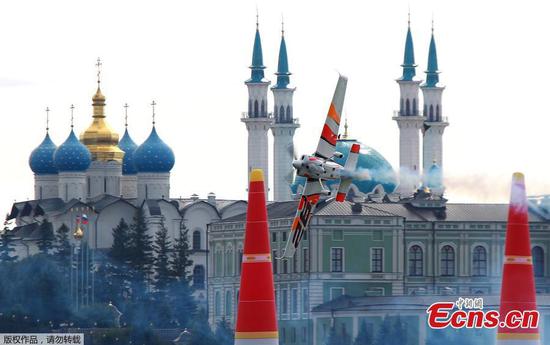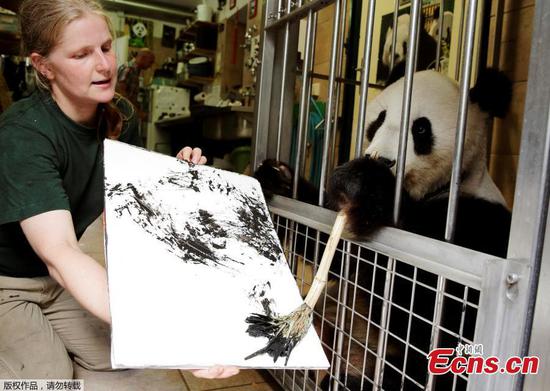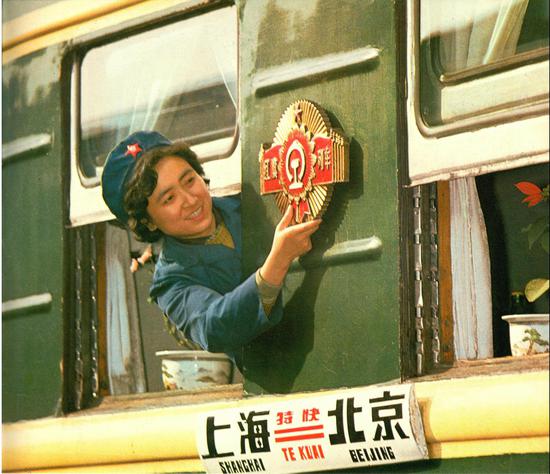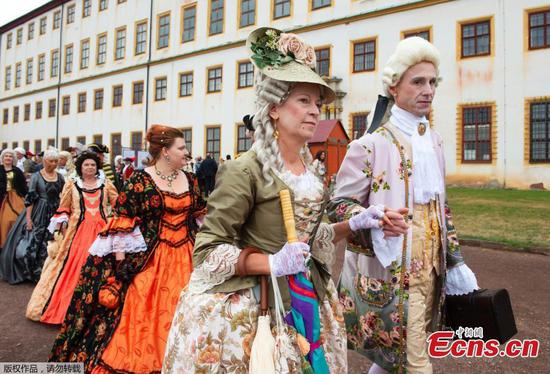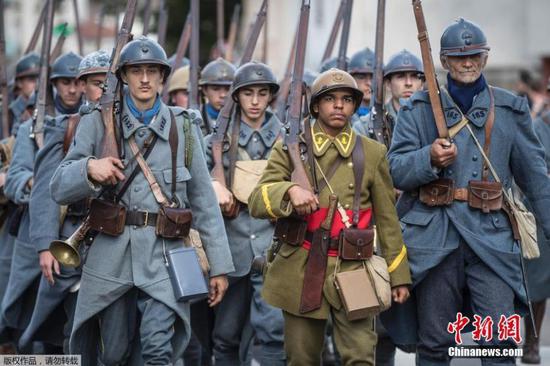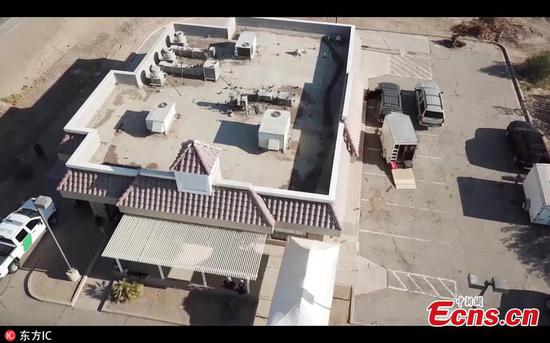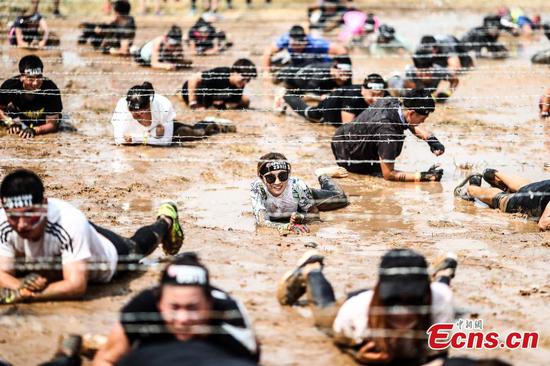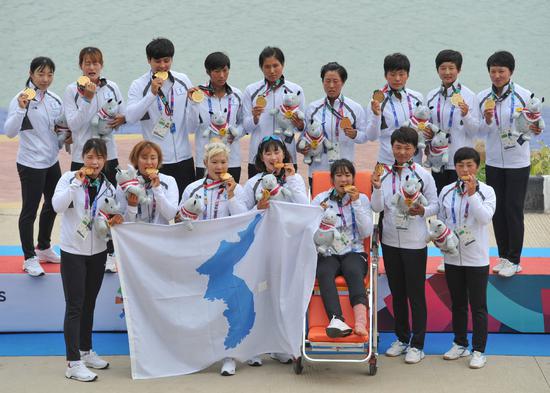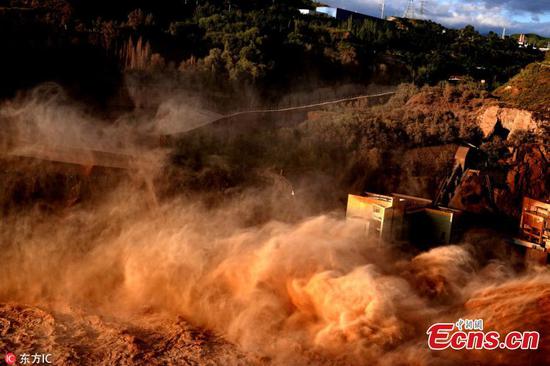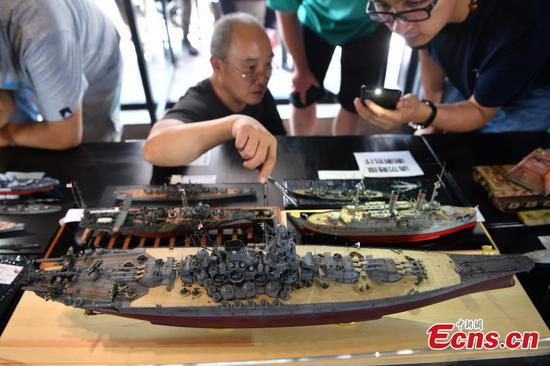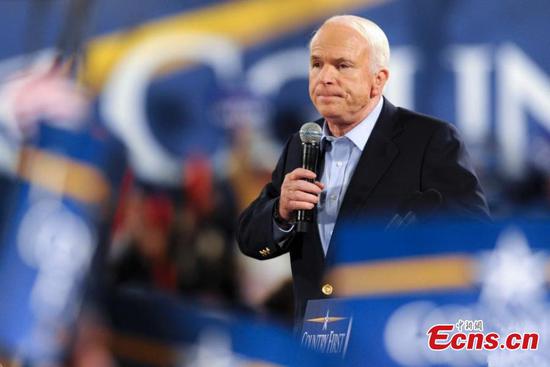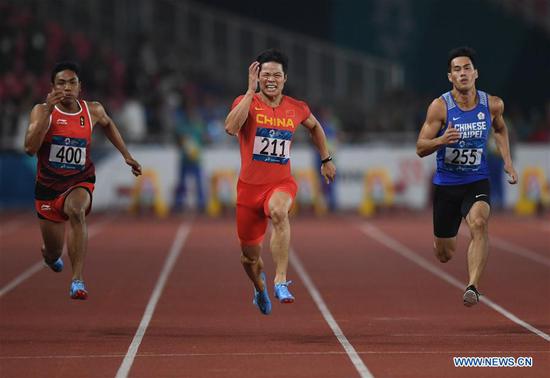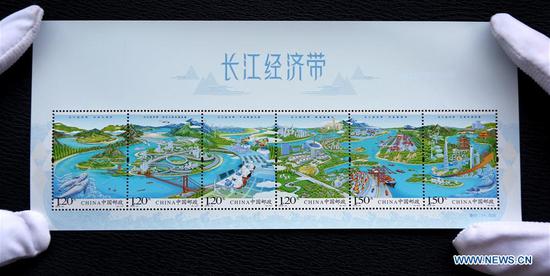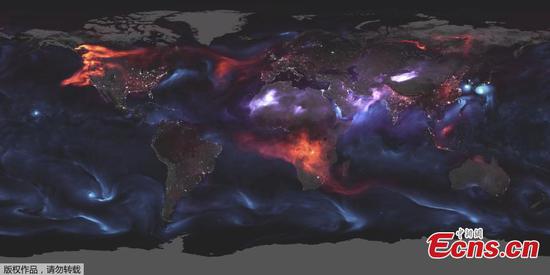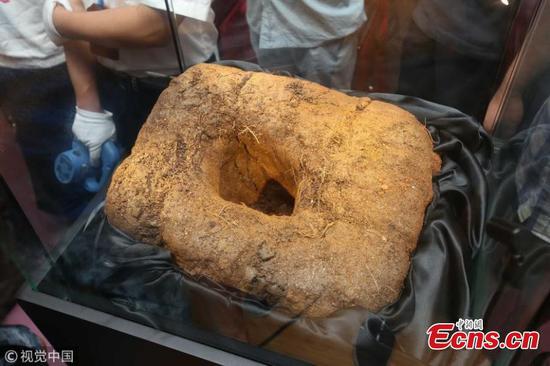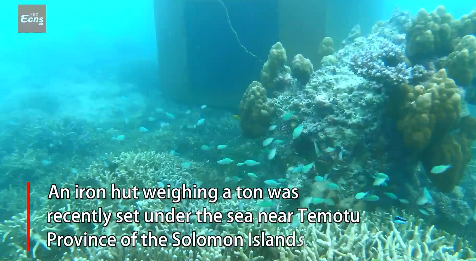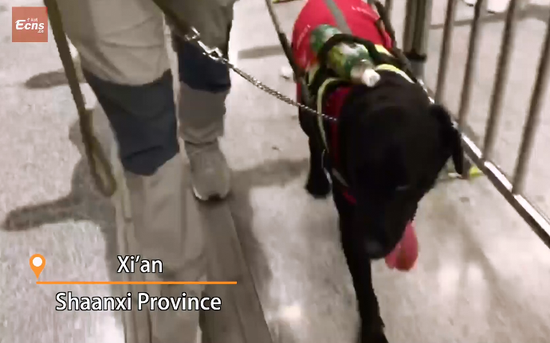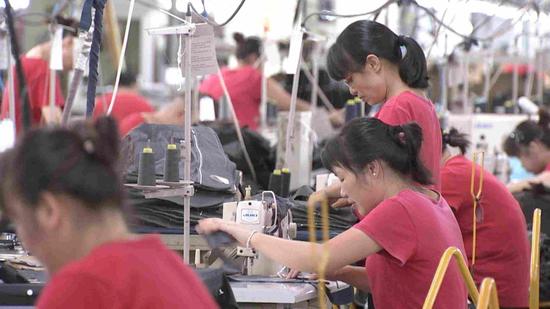
Factory workers at Hodo's assembly lines in Wuxi, Jiangsu Province. /CGTN Photo
As the U.S. authorities continue to threaten more rounds of tariffs, many Chinese companies are quickly adjusting their overseas strategies to brace for impact from the China-U.S. trade war.
Known as the world factory, China relied heavily on labor-intensive and export-oriented manufacturing industries. But many local firms are looking inward for the rising domestic market, while at the same time raising the added value by improving the quality and design of their products.
CGTN visited the booming assembly lines of a leading Chinese private clothing firm, Hodo Group.
Founded in 1957, the company said 35 percent of their exports go to the United States.
"Some clothing material is already included in the latest tariffs list, so we need to prepare for the worst," said Zhou Gang, foreign business manager of Hodo Group.
The company's products are not yet on the list of U.S. tariffs, but Zhou said they never knew if they would wake up tomorrow to find a new message on Twitter from U.S. President Donald Trump.
"Many take the trade war as a risk, but we take it as a chance to change our business model," Zhou told CGTN.
In the past, China sold hundreds of millions of shirts to earn enough money to buy U.S. aircraft. But the model now proves unsustainable. Labor costs are on the rise, and a trade dispute with Washington puts the exports of low-cost made-in-China goods at stake.
The company now hires young graduates who majored in fashion at prestigious universities in the West.
He Minhui, who just graduated from a top university in Paris, told CGTN that designs increase the added value of their products.
"We are trying to change China’s image from a manufacturing giant to a design powerhouse, she added.
But she admits it will take a while for Chinese designers to catch up with the world's fashion gurus.
The company is also aggressively embracing the domestic market, with China going through an unprecedented trend of consumption upgrades.
Dai Minjun, vice CEO of Hodo Group, said uncertainty is the nature of foreign trade for any firm.
"Because you can never control or predict what the market will look like tomorrow. We have gone through many downturns before, including the 2008 U.S. financial crisis and the following Eurozone crisis. Each hit exports hard, but we focused on what we can do," she said.
The resilience of these Chinese firms and the no-quit attitude of Chinese workers are powering the nation's fight in the trade war.









